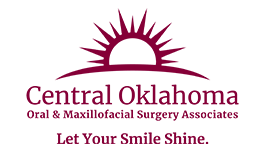15 Apr Oral Surgery Recovery Guidelines
 Your recovery after oral surgery, such as jaw surgery or facial trauma repair, makes significant contributions to the overall success of your treatment. Therefore, it’s important to closely follow all post-operative instructions provided by your oral surgeon.
Your recovery after oral surgery, such as jaw surgery or facial trauma repair, makes significant contributions to the overall success of your treatment. Therefore, it’s important to closely follow all post-operative instructions provided by your oral surgeon.
Being prepared for your post-operative needs can go far in promoting treatment success. You should also know what signs might indicate an issue and warrant prompt follow-up with our office. We strongly encourage you to ask any questions that you may have about these important topics.
Potential Post-Operative Problems
Any oral surgery, even something like a fairly routine extraction of wisdom teeth, is associated with some post-operative risks.
- Infection
- Severe or enduring discomfort
- Persistent bleeding and/or swelling
There are other symptoms that may indicate issues after your particular surgery, so your oral surgeon will provide further education on any concerning signs specific to your case.
If you notice any concerning symptoms, such as bleeding that doesn’t ease up within 24 hours of the procedure or noticeable signs of infection, contact our office right away. You can even reach out to us after business hours via our answering service.
Instructions for Self-Care After Oral Surgery
While any oral surgery is associated with some risk of complications, there are certainly steps that patients can and should take to minimize those risks. Before you leave our office, you will receive written documentation of post-operative instructions regarding topics such as:
- Symptom management
- Oral hygiene care
- Diet
- Medication use
- Activity restrictions
We recommend that our patients obtain all necessary supplies, including filling any prescriptions and buying any medical supplies, such as gauze, in advance of their scheduled appointment. Also, plan for any temporary dietary changes that you may need to make and buy appropriate groceries.
Most patients will not need to change their routines for more than a week or two, at most, but there may be some exceptions. Ask your oral surgeon for a better idea of what you should expect in that case.
If you have any questions about taking care of yourself after your surgery at our office, don’t hesitate to ask. We want to make sure that you have all of the information you need to have a successful outcome.
